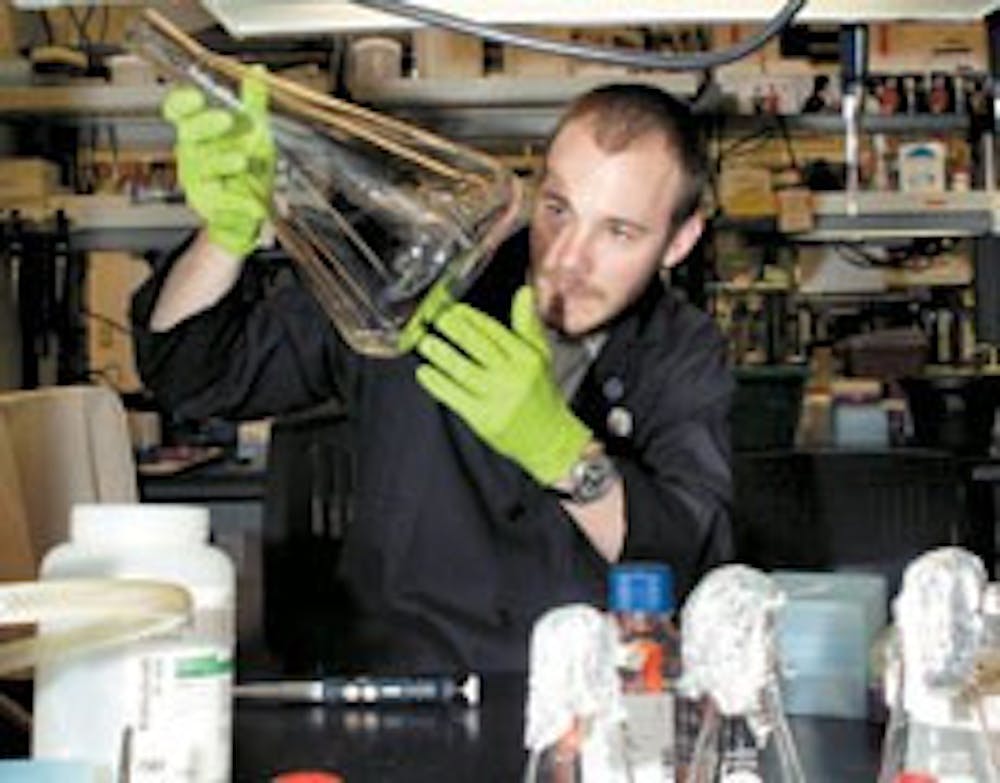Imagine you're sitting in class, minding your own business, when you're suddenly struck by an aneurism, or something similarly fatal.
When an innocent bystander notices you have fallen to the ground and aren't breathing anymore, they hang up their cell phone and check for your pulse, noticing a medical bracelet on your left wrist.
The bracelet is engraved with simple instructions and 1-800 number: "In case of death, call Alcor Life Extension Foundation."
After calling the number, this bystander witnesses a group of men who arrive and inject your officially dead body with a slew of drugs. They whisk your body off to be placed in a container where your remains will be kept at minus 120 degrees Celsius, until a day when technology will exist to bring you back to life.
Alcor is a non-profit company operating in Scottsdale that offers its clients the option of being cryogenically frozen, and having their bodies stored in the Alcor facility until a time arrives when they can be brought back to life. Currently, there are 73 bodies stored at Alcor, and about 800 living members around the world.
According to the company, the cryogenic process is expensive, starting at $80,000 for the preservation of a brain and jumping to $150,000 for a whole body. Clients usually start a life insurance policy that, when it matures, gives money to Alcor rather than to family members.
Marshall Reaves, a 21-year-old ASU student, is in the process of taking out such a policy, which he says will cost him between $10 and $20 a month.
"For the price of a few drinks from Starbucks every month, I can potentially prevent myself from dying," Reaves says. "It's a matter of priorities."
Reaves is majoring in biochemistry, molecular biosciences and biotechnology, and minoring in computational mathematics. His research at the Biodesign Institute has been honored with national awards, and he has presented at numerous conferences around the country. Professors have called him a natural scientist.
Despite his wealth of scientific training and knowledge, Reaves says he still encounters skeptics and occasional ridicule when he talks about his plans for his earthly remains.
"Everyone whose opinion I would respect is a well-trained scientist," he says. "As a scientist, they have to accept the fundamental concept that anything really is possible."
Many of the doubters and opponents of the process come from differing ethical or moral perspectives, he says.
"No offense to anyone else," he says. "But having my body frozen for the possibility of resuscitation doesn't seem any weirder to me than being burned or buried in a wooden box six feet underground."
According to ASU bioethics professor Jason Robert, there isn't too much debate within the bioethics community on the issue.
"People say that the kind of research that would be required to make good on re-animation from a cryonic state is a waste of resources that could be spent on much more pressing researching," he says. "While that's a fine argument to make, it's not clear that that sort of money would actually be spent on something better."
The lack of a guaranteed resuscitation also helps resolve ethical issues, Robert says.
"Since cryonics companies make no guarantees, there are no fraud issues," he says. "Companies don't tell people, 'Well, in 50 years, we'll bring you back with a robot body!'"
For Reaves, many of the ethical issues are resolved in his personal beliefs.
"Some people put their faith in religion, and I respect that," he says. "I trust in science."
He also says people question him about whether he would really want to live that long.
"At this point in my life, I can't imagine ever wanting to die," he says. "When there are so many problems in the world, why wouldn't you want to have time to try and help solve them? Maybe my point of view will change over time, but I don't know. There's so much I want to do, and I'd be upset if I missed out on any of it."
Reach the reporter at benjamin.horowitz@asu.edu.




